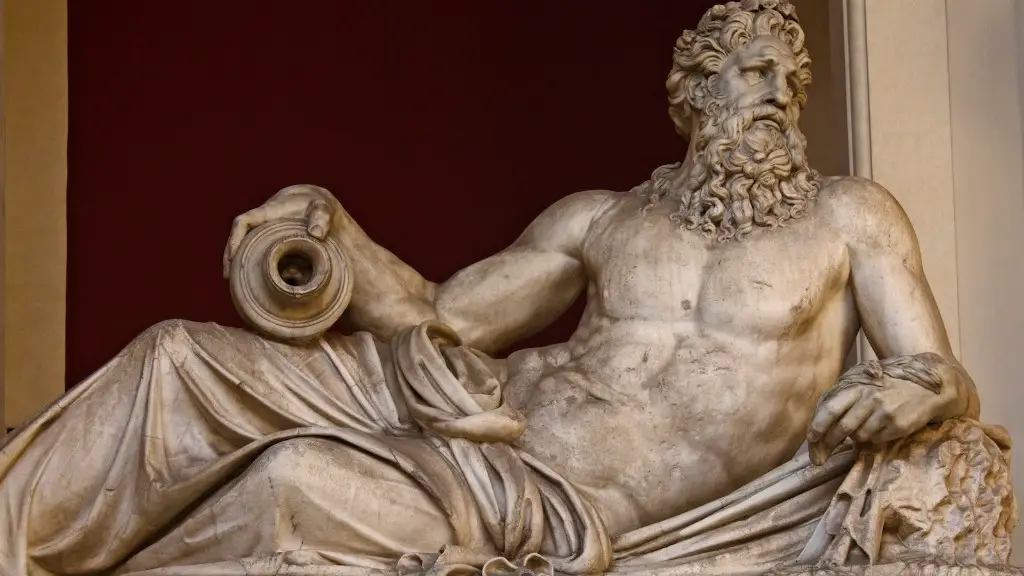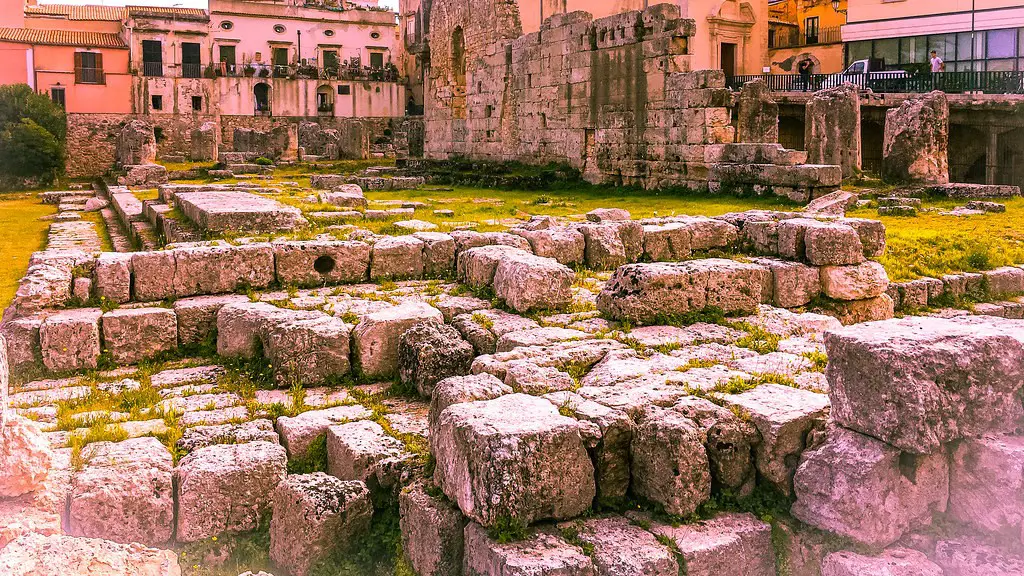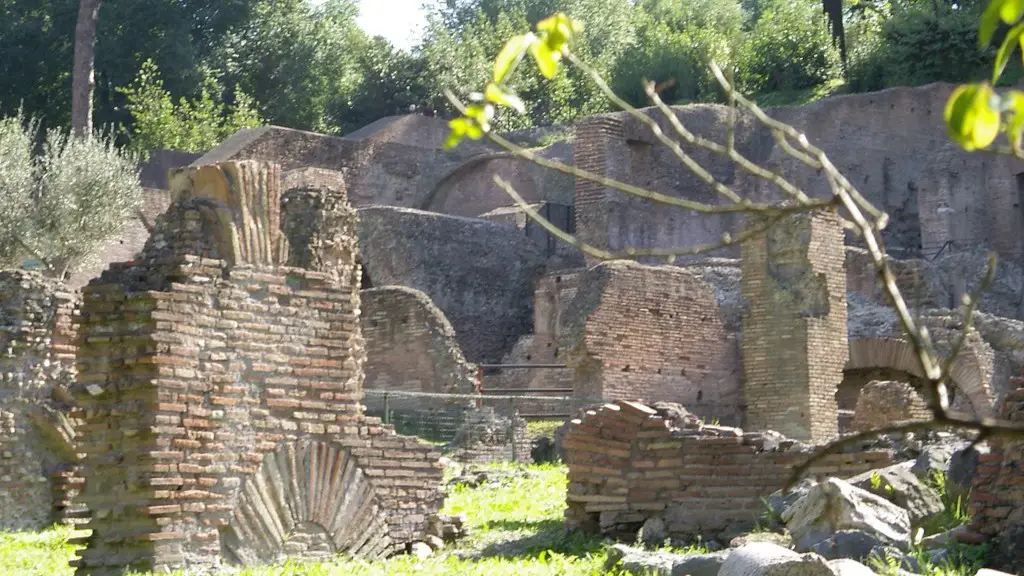Satire is an ancient art form which has been popular for thousands of years. The ancient Roman Empire was no stranger to the craft and generated some of the most iconic and talented satirists in history. So who was the greatest ancient Roman satirist?
One of the more well known ancient Roman satirists is Juvenal, who wrote verses in an attempt to ridicule and parody the injustices he saw around him. His works were considered to be among the most biting and witty of the time, and even today his works have withstood the test of time. He was widely recognised as one of the most talented satirists of ancient Rome and his works are still studied and quoted today.
Another excellent satirist was Persius, who turned his satirical eye to the overly haughty aristocracy and the unjust actions of the state. He was dedicated to highlighting the hypocrisy of the political and social sphere, as well as poking fun at the blindly traditional elements of society. He wrote in a highly refined manner and wasn’t afraid to cross some lines in his poems.
Another famous figure in Roman satire is Horace. Horace wrote in the style of a moralist and critic, attempting to push his audience to think beyond the boundaries of what was socially accepted. His messages were designed to make readers look deeper at the topics he wrote about and question the values in which they’d been taught to believe.
The greatest satirist of ancient Rome, however, is without doubt the great satirist Lucilius. His masterful satire was unlike any other at the time and took aim at public figures and boasts. His writing was notable for its frankness and severity, and it is believed that his work was so effective because it was sharp as a knife and his content wasn’t afraid to cross any controversial boundaries.
Many of his ideas and topics have been argued to have had a major influence on the writers throughout the rest of the age,and for that reason it is generally accepted that Lucilius was the greatest satirist of the ancient empire.
Influence of Ancient Roman Satirists
The influence of ancient Roman satirists is still felt to this day, with much of the literature of the day taking its cues from the great minds of antiquity. Many elements of satire today can trace their roots to the great minds of ancient Rome and are testament to their enduring powers of influence, even long after the collapse of the empire.
Humorous satire has become a key element of modern culture, particularly in relation to the many TV shows, films and plays that use satire to make a statement or to simply provide the audience with some light relief. Even the most slapstick of sitcoms can often be traced to the ancient Roman masters of satire.
More serious shows often draw upon the ancient satirists’ criticism of politics and social mores to make a point. Ancient Rome was peopled by incredibly knowledgeable and cultured individuals, many of whom had in depth knowledge of social injustices and misuse of power within the city. Their critique of what they saw then is still relevant to much of the injustice seen in our own societies today.
The influence of these great minds is still seen in modern literary circles, with the works of these ancient satirists still inspiring debate and discourse in books, newspapers and magazines on the topics of politics, morality, and power.
Writers Inspired by Roman Satirists
Many modern writers have been inspired by the works of ancient Roman satirists, particularly those writing in the essay form. Some writers use satire as a way to criticise the powerful, as Roman satirists such as Persius did in their time. Others seek to bring humour to delicate subjects in their writings, echoing the way in which Juvenal and Horace used humour to raise awareness of moral and social issues.
Today, satire is widely used in films, television programmes and even in video games in an effort to both entertain and educate. Films such as Disney’s Aladdin and Dreamworks’ Shrek take the idea of satire and use it to create a funny and meaningful story. Similarly, TV programmes such as The Simpsons and South Park employ satire to challenge the viewer’s concept of reality and to comment on contemporary issues.
The ideas and techniques employed by the ancient Roman satirists remain useful and relevant in modern times. As writers, we may never reach the excellence of the great masters of Roman satire, but their works continue to inspire us and to provide us with tools to challenge and comment on the world around us.
Modern Adaptation of Ancient Roman Satirists
In recent years, there has been a resurgence in the use of ancient Roman satire across many different media, from film to literature and television. This has given a fresh new interpretation to the ancient art form and has brought an often neglected topic back into the limelight.
Movies such as Asterix and Obelix Take on Caesar and Gladiator play on the themes of satire, poking fun at the political system, corruption and power struggles that were prevalent in ancient Rome and which still remain relevant today. Similarly, television programmes such as I, Claudius adapting Robert Graves’ inspirational work, use satire to comment on the political and social climate of the time.
The resurgence of satire in the modern era brings a realm of possibility. It gives us the opportunity to dive into the minds of these genius satrists, to learn, to laugh and to criticise the world as they once did. Satire is an essential tool to both entertain and inform and with the resurgence of ancient Roman satire, we can’t help feel that these great minds will live on forever.
Examples of Ancient Roman Satire
Examples of ancient Roman satire can be found throughout classical literature. One of the most well known works is the Satire of Juvenal, which was written to poke fun at society and its injustices. Persius also wrote brilliant and biting satire, attacking the hypocrisy of a society which he believed had strayed far from its roots. Horace, too, wrote a series of works in which he sought to challenge received values and provoke thought. Finally, and perhaps most notably, Lucilius wrote scathing satire in which he ridiculed public figures and boasts.
These works remain an example of some of the greatest satire the world has ever seen. They wield a power which has remained alive for centuries, even after their authors have long since passed away. They bring a level of wit and intricacy which is still unmatched today and which we as modern readers can still appreciate and learn from.
Their works have remained as powerful and relevant today as they were when they were written, and it is thanks to them that we can continue to enjoy satire as part of our culture. Their boldness and creativity set them apart and is a testament to their genius.
Relevance of Ancient Roman Satire Today
Ancient Roman satire is still incredibly relevant today. Its combination of humour and seriousness with which it tackles topics give it a unique power and it still has the capacity to make us think and challenge our preconceived ideas. It is also still a great source of entertainment, imparting a wonderful sense of joy to its readers.
The brilliance of the Roman satirists lies in the fact that their work is still applicable and applicable today, with much of their humour still making us laugh and many of their ideas still holding true.
It is this enduring relevance which gives their work such power and influence, and which will ensure that the works of ancient Roman satirists continue to entertain and educate for many years to come.





